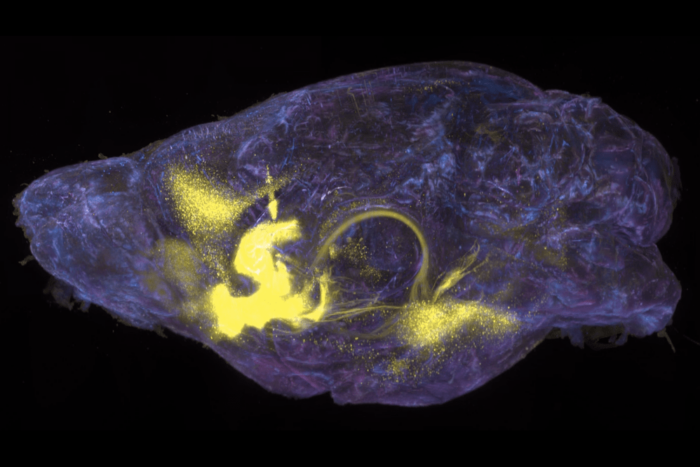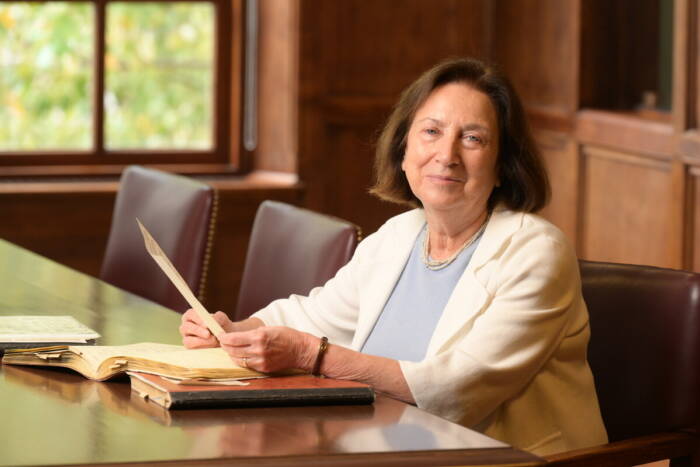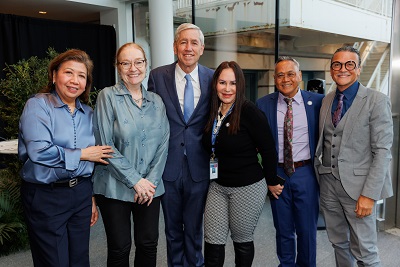Fall search for new faculty has yielded 10 finalists
At first glance, they appeared to have little in common. The ten speakers who traveled to Rockefeller to speak at scientific symposia this winter came from as nearby as the Upper East Side and as far away as Zurich. Scientifically, they represented a broad range of subspecialties, with research underway on everything from peptide design to nanoscale biosensing. But they were all here for the same reason: to interview for new jobs as Rockefeller faculty members.
The annual “open search” process is the university’s main mechanism for recruiting tenure-track faculty members. Since its implementation in 2005, it has yielded 21 new Rockefeller scientists. (An additional 5 mid-career scientists were also recruited during this period, through a separate search process.)
This winter’s symposia, which took place on January 22 and February 5, gave the Rockefeller community its first glimpse of the ten finalists from the university’s 2018-2019 open search, chosen from among 500 applicants. It also gave the candidates a chance to see our facilities, meet with faculty and students and learn about life at Rockefeller.
“Recruiting the most innovative young faculty is vital to the University’s continued success,” says Richard P. Lifton, Rockefeller’s president. “The Open Search Symposia have been terrific for bringing outstanding faculty candidates to campus. They have also been a terrific venue for our scientific community to come together and consider which fields are ripe for advances, and which specific scientists are most likely to make major breakthroughs.”
The open search committee, currently chaired by Paul Bieniasz, head of the Laboratory of Retrovirology, consists of 10 subcommittees, each representing one of the university’s 10 broad research areas. Subcommittees review applicants from within their own fields and invite the most promising to have video interviews, which are recorded so they can be viewed by the full committee.
This year, from search committee evaluations, 23 applicants were invited for video interviews, and from this group ten were selected to visit campus to participate in the faculty candidate symposia. This year’s numbers are similar to those of recent years. The applicants’ research presentations, open to the entire scientific community and held in the Carson Family Auditorium, were in fact just one part of a two-day visit that also includes tours of resources centers, lunch with graduate students, and meetings with current faculty. On the second day, candidates also present a “chalk talk” with a smaller group of faculty with expertise or interest in the candidate’s specific areas of inquiry, in which they discuss details of their research and plans for their future laboratories.
“This is an effort that draws on the expertise and insights of the entire Rockefeller scientific community,” Bieniasz says. “We’re looking not only for exceptional scientists doing original work, but also choosing new colleagues who will become trusted collaborators and colleagues. We want people who are going to thrive and help Rockefeller thrive.”
Following this winter’s symposia, the search committee will next reconvene to decide which candidates to engage in further discussion.
“There’s no set number of positions to fill,” Bieniasz says. “We have the flexibility to recommend more than one candidate if we feel they would be excellent additions to the community, or we can recommend none if no one receives the broad endorsement of the search committee.”
Last year’s search resulted in two offers being extended, to Amy Shyer and Viviana Risca, who both accepted and are now in the process of establishing their labs. Other recent searches led to the recruitment of Jeremy Rock in 2017, and Greg Alushin, Priya Rajasethupathy, and Li Zhao, all in 2016.


